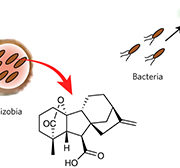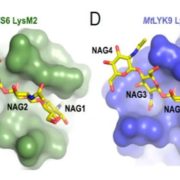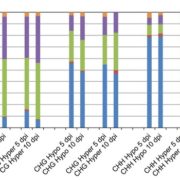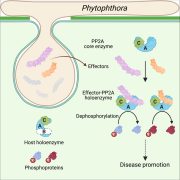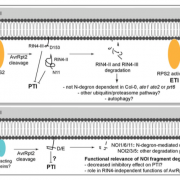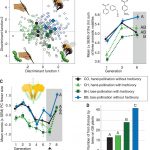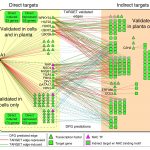Pollinator functional diversity and abundance enhance crop pollination and yield (Nature Comms)
 Insects provide a valuable service to the agricultural industry through pollination, which increases both the quality and harvest volume for many important food crops, however little is known regarding the role of insect functional trait differences in promoting crop pollination. Woodcock et al. tested two contrasting hypotheses that propose mechanisms through which pollinator community structure and functional traits influence pollination: the mass ratio hypothesis, which posits that the traits of the most abundant insect species will predict pollination success in a community, and the complementarity hypothesis, which posits that communities with more diverse functional traits will have greater pollination success. They found support for the complementarity hypothesis via correlations between functional divergence in effect traits and crop yield after accounting for any effects of overall pollinator abundance. No evidence supporting the mass ratio hypothesis was found. This study highlights the potential value that promoting and maintaining functionally diverse insect communities could have for the agricultural industry and the importance of further studying the relationships between pollinator functional diversity and plant fitness. (Summary by Rebecca Hayes) Nature Comms. 10.1038/s41467-019-09393-6
Insects provide a valuable service to the agricultural industry through pollination, which increases both the quality and harvest volume for many important food crops, however little is known regarding the role of insect functional trait differences in promoting crop pollination. Woodcock et al. tested two contrasting hypotheses that propose mechanisms through which pollinator community structure and functional traits influence pollination: the mass ratio hypothesis, which posits that the traits of the most abundant insect species will predict pollination success in a community, and the complementarity hypothesis, which posits that communities with more diverse functional traits will have greater pollination success. They found support for the complementarity hypothesis via correlations between functional divergence in effect traits and crop yield after accounting for any effects of overall pollinator abundance. No evidence supporting the mass ratio hypothesis was found. This study highlights the potential value that promoting and maintaining functionally diverse insect communities could have for the agricultural industry and the importance of further studying the relationships between pollinator functional diversity and plant fitness. (Summary by Rebecca Hayes) Nature Comms. 10.1038/s41467-019-09393-6



